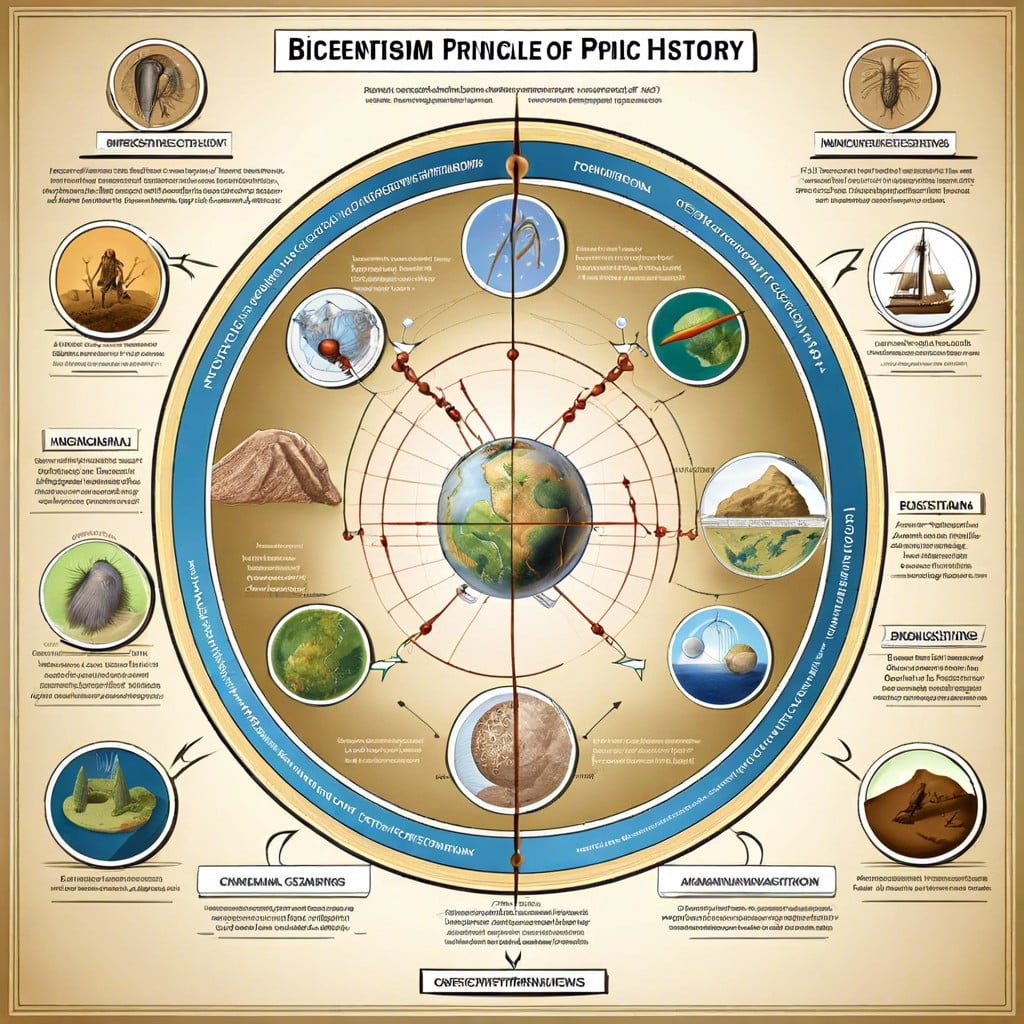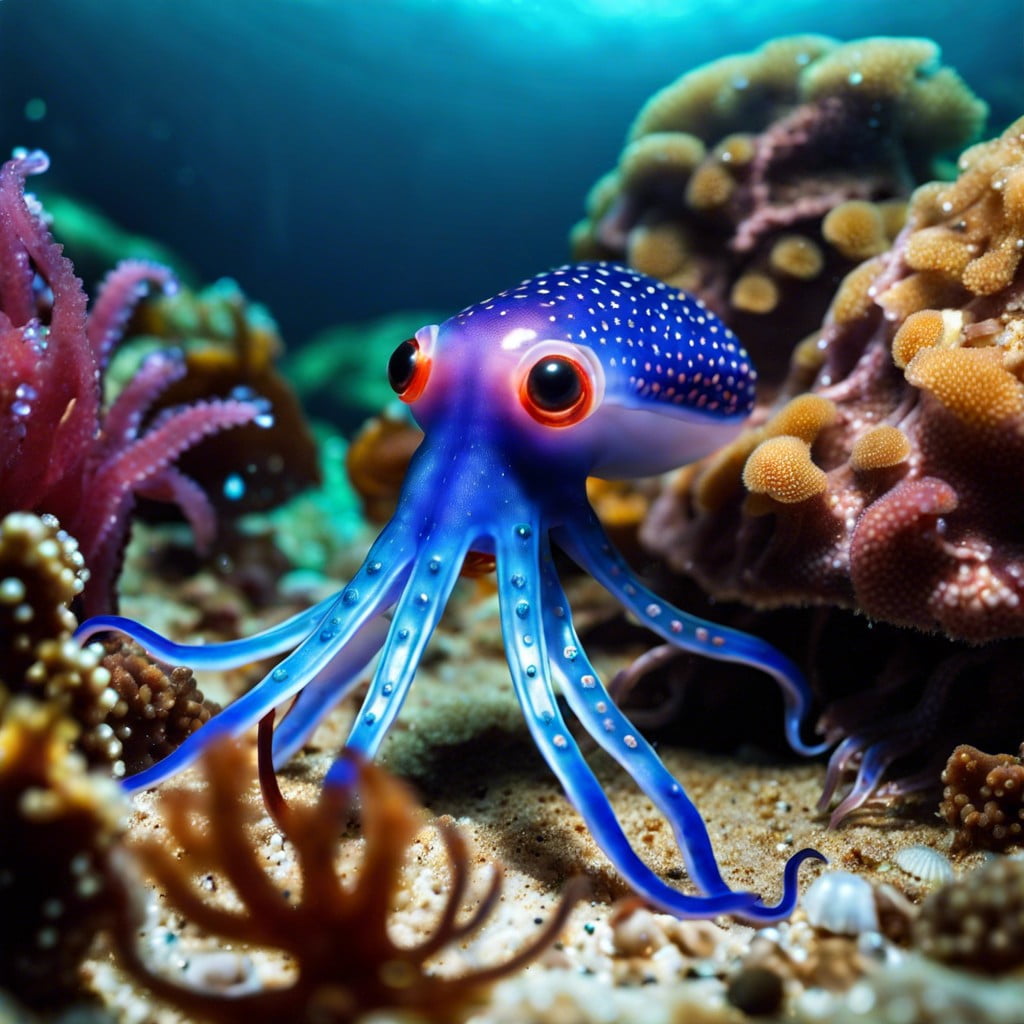Last updated on
Dissecting the concept of biocentrism because its impact on our understanding of the universe may not be as profound as proposed, demands a deeper scrutiny.
Key takeaways:
- Biocentrism posits that life creates the universe.
- It emphasizes the role of consciousness in shaping reality.
- Time and space are subjective constructs of the human mind.
- Biocentrism challenges the objective observation in science.
- Critics argue that biocentrism lacks empirical evidence and scientific validations.
Defining Biocentrism

At its core, biocentrism posits that life creates the universe, not the other way around—the living observer is the key. It essentially flips the traditional scientific narrative, declaring biology as central to the understanding of the universe. According to biocentrism, life and biology are fundamental to reality, shaping the structure of the cosmos, time, space, and even the very concept of what we call “reality.”
Diving deeper:
- Life as the creator: Biocentrism asserts that without conscious observers, the universe wouldn’t exist.
- Seven principles: The theory is structured around seven key points that build on each other, affirming life’s central role in existence.
- Consciousness-centric: The role of the conscious observer in shaping the physical world is heavily emphasized.
- Time and space: These are perceived as constructs of the human mind rather than independent realities, leading to the conjecture that our understanding of the cosmos is inherently subjective.
This innovative perspective invites a conversation regarding the interplay between consciousness and the fabric of the universe, challenging the conventional wisdom of objective observation in the sciences.
History and Central Tenets of Biocentrism

Biocentrism emerged in response to anthropocentric views that place humans at the universe’s center. It positions all life forms as the focal point of existence. At the heart of this philosophy is the idea that life and biology are central to reality, forging a reciprocal relationship between consciousness and the universe. This shifts the paradigm from a human-based to a life-based perspective.
Integral to biocentrism is the belief that all living things possess an inherent value and that humans are not superior. According to this viewpoint, life creates the universe, not the other way around. This leads to a profound rethinking of our place in the cosmic scheme, emphasizing that our understanding of the universe is deeply intertwined with our perception as living beings.
Another cornerstone is the concept of interconnectedness, suggesting a fundamental unification of all life forms, which is a stark contrast to the often isolationist human perspective. In essence, biocentrism posits that the universe and every life form within it are part of an indivisible, dynamic system in which everything affects everything else.
Robert Lanza’s Biocentrism: Key Concepts
Robert Lanza’s assertion is bold: life creates the universe, not the other way around. Here’s a distillation of his thought-provoking concepts:
- Consciousness as Central: Lanza posits that the universe only exists because of an observer. Without the presence of a conscious observer, he argues, the universe would remain in an undetermined state of probability.
- The Science of Observation: Within his framework, how an observer perceives the world actually influences the physical processes that occur. It’s a riff on the observer effect in quantum physics but taken to a macro level.
- Time and Space: These are not hard-etched elements of an external scaffold in which we exist, but rather tools of the human mind designed to make sense of things. According to Lanza, they’re not just relativistic, but subjective.
- Biology’s Interplay with Reality: The biological processes of an organism, Lanza points out, interact with the physical world to create reality. This means that life does not just adapt to physics—life changes physics.
Each of these concepts alone could stir a hearty debate, but together they form a radical new way of thinking about our place in the cosmos—suggesting that biology is not just living within physics, but that it is an essential actor in shaping the physical laws of the universe.
Supporting Arguments for Biocentrism
Proponents of biocentrism argue that all life forms are central to the existence and nature of the universe. This lens suggests a paradigm shift from an anthropocentric view where humans are at the center to one where all life holds equal importance. Key points contend that:
- Consciousness creates the universe, not the other way around; without the observer, proponents argue, the universe doesn’t exist.
- They believe there’s a strong relationship between the conscious mind and the physical world, pointing to the observer effect in quantum mechanics as evidence that observation can influence reality.
- Life and biology are essential to understanding the nature of reality; biocentrists see living organisms as integral in defining the universe.
- Death is not the end of existence; instead, life’s continuity is a fundamental component of the universe as per biocentric thought.
- Time and space are not objective realities; they’re tools of the human and animal mind to understand the universe.
These points collectively aim to challenge our standard perceptions of reality and the universe in a more inclusive and life-embracing approach.
Critiques and Counterarguments
Biocentrism faces considerable scrutiny from the scientific community. Critics argue that its reliance on quantum physics to explain consciousness is a leap too far. To clarify, the Copenhagen interpretation of quantum mechanics, often cited by biocentrists, suggests that an observer plays a role in shaping reality. However, misapplying this to consciousness creates a logical fallacy; consciousness does not collapse quantum functions.
Furthermore, detractors point out that biocentrism leans heavily on a subjective experience of the world, disregarding the objective reality that science seeks to understand. This subjectivity echoes solipsism, which posits that only one’s mind is sure to exist. Such an assertion appears antithetical to the empirical underpinnings of scientific inquiry.
Adding to the criticism, some argue that biocentrism’s central claim—that life creates the universe rather than the other way around—lacks empirical evidence. It seems to reverse causality, raising more questions than it answers. By placing consciousness at the center of existence, it skews toward a form of mysticism rather than testable, falsifiable science.
An additional point of contention is the theory’s apparent failure to adequately address evolutionary biology. By focusing on consciousness as a driving force, it seemingly downplays the role of natural selection and genetic variation which, unlike biocentrism, are well-supported by the fossil record and genetic evidence.
In summary, while intriguing and compelling in its boldness, biocentrism is met with skepticism by those who value empirical validation and reproducibility, fundamental tenets of the scientific method.
Scientific Inconsistencies
The allure of Biocentrism lies in its grand narrative, which places life at the center of the universe’s understanding. Nonetheless, it falters under the weight of scientific scrutiny. At its core, biocentrism rests on the idea that life creates the universe rather than the other way around. This suggests a radical departure from the conventional scientific method, which relies on objective observation that exists independently from human perception.
One of the major criticisms is that biocentrism cherry-picks from quantum physics principles, such as the observer effect, extrapolating it beyond its scientifically accepted domain. The observer effect proposes that the act of observation can influence the outcome of a quantum event. However, extending this to the macroscopic level—suggesting that consciousness is what brings the universe into existence—remains unsupported by empirical evidence.
Furthermore, biocentrism often ignores the issue of falsifiability. For a theory to be scientifically robust, it should be testable and able to be proven wrong if incorrect. Biocentrism, as it stands, offers no such testable predictions, placing it outside the realm of empirical science.
Lastly, while the concept of a biological universe can sound intriguing, it seems to misunderstand and misrepresent the second law of thermodynamics. The universe’s trend towards entropy or disorder is a fundamental law of physics. Biocentrism’s suggestion that life’s complexity inherently affects universal laws clashes with the understanding that physical laws do not accommodate for life’s existence, but rather, life has adapted to these laws.
Thus, while captivating in its philosophical appeal, from a scientific perspective, biocentrism stumbles on foundational grounds, failing to adhere to the rigorous validations that underpin our current understanding of the cosmos.
Misinterpretations of Quantum Physics
Quantum physics, a field often co-opted by various philosophical debates, is a complex beast. Its true nuance is frequently overshadowed by simplified explanations that lead to grand, yet unfounded, theories. Critics argue that biocentrism is one such theory, resting on a precarious interpretation of quantum mechanics.
The crux of the misinterpretation involves the observer effect—biocentrists claim this supports their view that consciousness is fundamental to the universe. The observer effect indeed indicates that at the quantum level, particles exist in a state of probability until they are observed. However, scientists contend that ‘observation’ in this sense does not necessitate a conscious observer, but rather an interaction with another particle or a measurement device.
Furthermore, the biocentric leap to assert that consciousness creates reality extends beyond what quantum mechanics suggests. Quantum entanglement and superposition, while mysterious, do not substantiate the conclusion that the universe is contingent upon a conscious mind.
The extrapolation of these principles to support biocentrism seems to be more poetry than science, painting a broad metaphysical brush over a canvas of stringent mathematical theory. Quantum mechanics is arguably the most successful physical theory we have; it’s precise, predictive, and does not shy from the empirical challenges. Yet, its appropriation by biocentrism often neglects these strengths in favor of more esoteric interpretations.
Biocentrism and Its Ethical Implications
The ethical dimension of biocentrism asserts that all life forms are central to its value system, with a focus on the interconnectedness of all living entities. This perspective challenges the anthropocentric viewpoint that humans are the most important species on Earth and instead proposes that all forms of life warrant equal consideration.
From this standpoint, we’re compelled to reconsider our environmental policies and interactions with the natural world. Biocentric ethics suggests it’s not enough to protect nature solely for human benefits. We must account for the intrinsic worth of all organisms, including plants, animals, and even microorganisms, which can lead to a more holistic approach to conservation.
Moreover, the ethical implications of biocentrism spill over into debates over animal rights, habitat preservation, and biodiversity. Under a biocentric view, animal cruelty and environmental exploitation aren’t just harmful to humans or ecosystems; they’re seen as unethical in their disregard for the life experiences of non-human entities.
Such a framework also calls for an examination of our responsibilities toward future generations. The long-term impact of our actions on the sustainability of life forms becomes a moral issue, guiding decisions that may affect life on our planet for centuries to come.
Considering these elements, the ethics of biocentrism can have profound implications on policymaking, lifestyle choices, and even our economic systems, challenging us to develop a compassionate and sustainable relationship with the biosphere.
Biocentrism and Environmentalism: Allies or Foes?
At first glance, biocentrism might appear to be an environmentalist’s ally, promoting a sense of interconnectedness with all life forms. However, upon closer inspection, tensions between the two arise from biocentrism’s broader philosophical implications.
Firstly, one could argue that biocentrism extends ethical considerations to all living organisms, not just humans. This perspective could enhance environmental conservation efforts by recognizing the inherent value in all life, potentially leading to stronger protection for ecosystems.
Conversely, biocentrism’s principle may also dilute the urgency of environmental action. If all organisms are granted equal importance, urgent human-led conservation efforts might be seen as less critical. In the grand scheme, a species’ extinction could be viewed as a natural evolutionary event, not a crisis to be averted.
Furthermore, biocentrism might challenge the tools used in conservation. Prioritization of species based on ecosystem services, a common practice in environmental policy, could be at odds with biocentrism’s view that all life holds equal value, regardless of its utility to humans.
In sum, while biocentrism echoes some of the moral values of environmentalism, its practical implications for conservation strategy and policy could create a complex dynamic. It leaves us to ponder the true alignment between reverence for life and the prioritization of actions to preserve that life in the face of environmental challenges.
Alternative Theories
When considering the universe’s inherent nature, scientific discourse presents various models outside of biocentrism. Physicalism, for instance, posits that everything can be explained by physical laws and properties, rejecting the notion that consciousness plays a central role in the universe’s functioning. Likewise, anthropocentrism shifts focus, placing human beings as the central or most significant entities.
Panpsychism offers a unique perspective, suggesting that consciousness is a fundamental feature of all matter, not just living organisms. This theory reframes the relationship between mind and matter without positing consciousness as the creator of the universe.
Dual-aspect monism takes a different approach altogether, proposing that mental and physical properties are two aspects of the same underlying reality, akin to two sides of a coin.
Each of these theories endeavors to tackle the vast complexities of the cosmos, some aligning more closely with mainstream scientific thought, while others challenge the very fabric of empirical inquiry. It’s a rich and diverse terrain for exploration, where the only constant is change, and the quest for understanding continues.
FAQ
What is the Biocentrism theory of the universe?
The biocentrism theory asserts that life creates the universe, rather than the universe creating life, acting as an elaboration and justification of the participatory anthropic principle coined by physicist John Wheeler.
What is the answer to Biocentrism?
In the realm of biocentrism, the world’s existence is validated by life itself, highlighting that the birth and expansion of life forms serve as the foundation of our universe.
How does Biocentrism explain death?
In the paradigm of Biocentrism, death is viewed not as a definitive end, but as a transition or gateway into another universe.
What is Biocentrism opinion?
Biocentrism purports the concept that all species on Earth, including humans, possess intrinsic value and are interdependent, opposing the anthropocentric ideology of human superiority.
How does Biocentrism challenge traditional scientific views?
Biocentrism challenges traditional scientific views by positioning consciousness and life as central to reality, rather than physical objects and laws.
Can Biocentrism show a connection between consciousness and the universe?
Biocentrism indeed suggests a direct link between consciousness and the universe, portraying consciousness not as a byproduct of the universe, but rather a fundamental aspect of it.
How does Biocentrism influence our understanding of time and space?
Biocentrism challenges our understanding of time and space by positing that they are mere constructs of human consciousness, rather than inherent attributes of the universe.
Continue reading:
Recap



